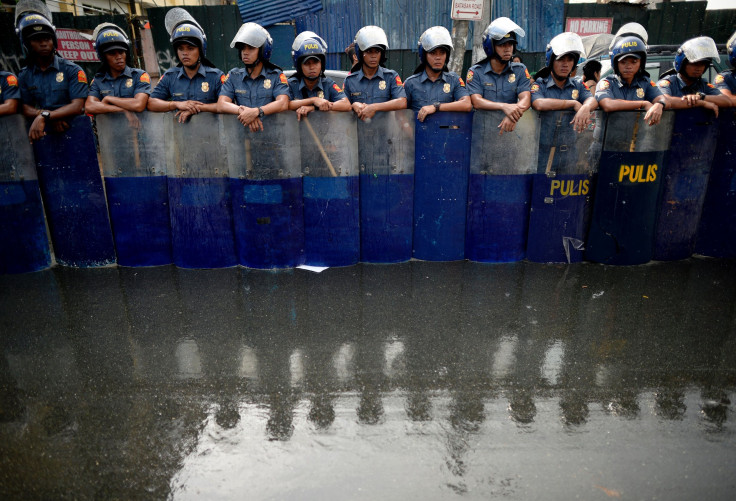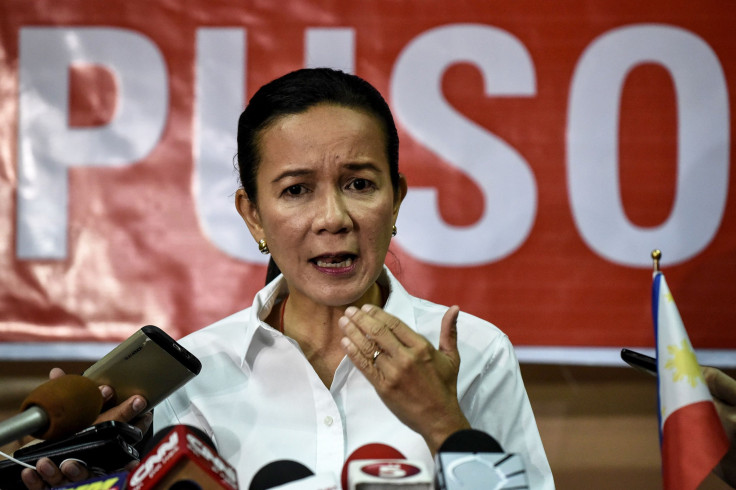Philippines’ Minimum Age Of Criminality: Grace Poe Opposes President Duterte In Lowering It To 9 Years

Filipino Senator Grace Poe in a resolution Monday wrote that lowering the minimum age for criminal responsibility from the current 15 years to 9 years will have a profound negative impact on children’s mental and physical health.
Speaker of the House of Representatives Pantaleon Alvarez filed a bill in July that sought to lower the minimum age of criminal responsibility. During his election campaign, President Rodrigo Duterte also promised to amend the country’s Juvenile Justice Law to curb the use of children by the mafia. However, the bill has received a lot of flak from several prominent people and organizations.
Senator Poe wrote Monday that lowering the minimum age “does not address the root causes of juvenile offending and vulnerabilities arising from illiteracy, oppression, extreme hunger and destitution.”
Poe, who stood third in the presidential elections earlier this year, added that if children were used by the mafia, then the law should hold the adults behind the criminal activities responsible instead of the children. She wrote that although the Senate backs President Duterte’s war on drugs, it does not stand by him when it comes to lowering the minimum age of criminal responsibility.
“It distracts society from the real causes as to why children offend… and from the real solutions which include improving the justice system for adult offenders, improving child protection policies to lessen exploitation and enhancing poverty reduction measures, all of which focus on child-sensitive restorative justice,” she wrote.

The United Nations Children’s Fund also opposed the bill, saying it went against the best interests of children. “If children who have been exploited by criminal syndicates are penalized instead of the adults who had abused them, we fail to uphold the rights and well-being of children. If we fail to understand the underlying reasons why they commit crimes, we fail children,” the international organization said in a statement.
The Philippine Action for Youth Offenders and Child Rights Network also opposed Alvarez’s bill, issuing a position paper in July.
“Our Congress took 13 years to craft the Juvenile Justice and Welfare Act of 2006. In 2013, it was amended to improve provisions on the administration of the Juvenile Justice and Welfare Council (JJWC), handling repeat offenders and children at risk of offending, and providing intervention and rehabilitative services for children in conflict with the law,” their position paper read. “It is imprudent to cast aside all the years of diligent study and in-depth discussions to formulate a Restorative Juvenile Justice system in the Philippines without careful research and in consideration of the current facts and laws promoting and protecting the rights of children.”
The paper was also signed by the Save the Children, World Vision Philippines, Child Fund Philippines, Center for the Prevention and Treatment of Child Sexual Abuse, Child Hope Asia Philippines, Children’s Legal Rights and Development Center, Plan International Philippines and others.
But a group of private schools in the country are backing the bill, calling it “reasonable.” Eleazardo Kasilag, head of the Federation of Associations of Private Schools and Administrators, said the weight of the criminal offense should be more important than the age of the offender.
Duterte has made global headlines over his controversial war on drugs and his flow of insults. He recently insulted President Barack Obama and threatened to quit the United Nations when the international peacekeeping body criticized his violent approach to tackling the drug trade in the Southeast Asian country.
© Copyright IBTimes 2025. All rights reserved.






















